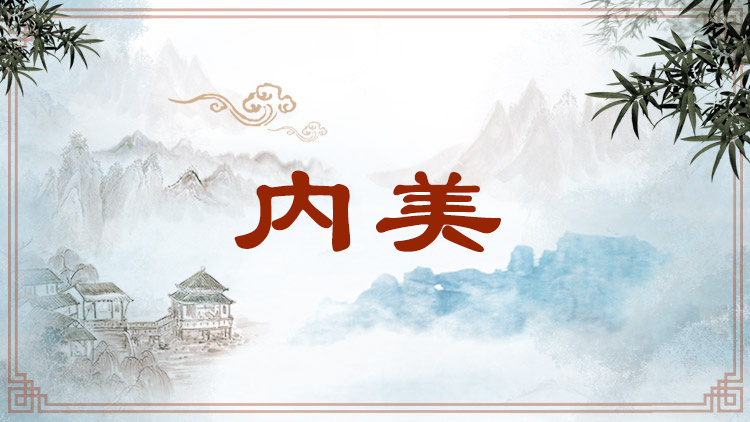Inner Beauty

內在的美好性情與品德。初見于屈原《離騷》,指先天稟賦的美德,由家族遺傳及早期環境造就。與之相隨的是“修能”,即初明事理后自覺自主地進行品德修養,并培養更多的才能。后來,用這一術語強調作者應該具有內在的美好性情與品德,高尚偉大的人格決定高尚偉大的文學。
Inner beauty means a fine disposition and moral character. It first appeared in Li Sao by Qu Yuan, referring to an inherited innate moral character which was further fostered in one's early living environment. On this basis acquired competence develops, which is achieved when one, after gaining initial understanding of the principles of things, consciously improves his moral character through self-cultivation, and strengthens one's abilities. Later this term is used to emphasize that an author should possess an inner fine disposition and moral character, and that noble and great literature can only derive from a noble and great character.
引例 Citations:
◎紛吾既有此內美兮,又重之以修能。(屈原《離騷》)
我天生擁有這么多美好的品德,又繼續培養自己的卓越才能。
Armed with such moral qualities given me by birth, I continue to develop competence. (Qu Yuan: Li Sao)
◎文學之事,于此二者,不可缺一。然詞乃抒情之作,故尤重內美。(王國維《人間詞話刪稿》)
文學創作這件事,要求內在品質和杰出才能兩方面,缺一不可。而詞是抒發性情的作品,所以尤其注重內美。
In literary creation, one must have both moral standard and outstanding capabilities. Neither is dispensable. As ci lyrics give expression to emotions, one must focus on bringing out the inner beauty. (Wang Guowei: Poetic Remarks in the Human World — An Edition with Deletions)
推薦:教育部 國家語委
供稿:北京外國語大學 外語教學與研究出版社
責任編輯:錢耐安





